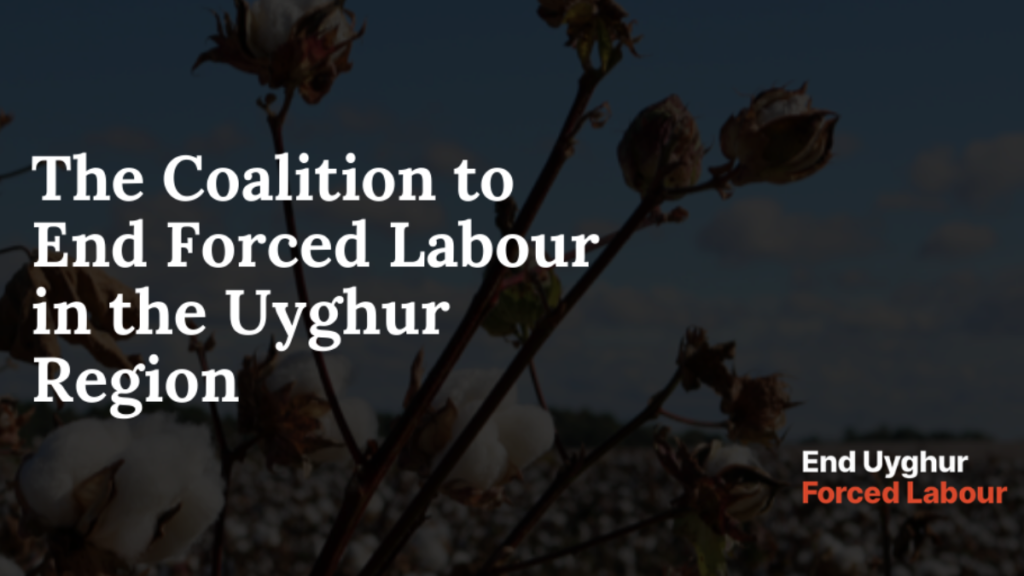New Report Finds Common Household Medication at High Risk of Being Linked to Uyghur Forced Labour

October 17, 2024
[Below is a statement by the Coalition to End Forced Labour in the Uyghur Region, for which the Uyghur Human Rights Project is a Steering Committee Member]
The pharmaceutical industry must immediately cut ties with the Xinjiang Uyghur Autonomous Region (Uyghur Region) and ensure no ingredients and other related products are linked to the egregious human rights abuses occurring in the Region. According to a new report by C4ADS, 76 drugs exported from China are only produced in the Uyghur Region, including certain Chinese traditional medicines, conjugated oestrogen cream and tablets (used to treat symptoms of menopause), and acetaminophen pseudoephedrine effervescent granules (used in pain medication).
Disturbingly, one of the companies identified in the report, “Side Effects: The Human Rights Implications of Global Pharmaceutical Supply Chain Linkages to XUAR,” Xinjiang Deyuan Bioengineering Co., LTD., is the only Uyghur Region-licensed blood product manufacturer and has numerous blood collection stations throughout the Region. The company exclusively operates in the Uyghur Region and, according to the research, appears to have directly benefited from forced displacement of Uyghurs and government subsidies. Uyghurs in the Region have previously been subjected to mandatory biometrics collection including DNA and blood samples, and the Office of the UN High Commissioner for Human Rights’ 2022 report on the Uyghur Region cites direct evidence that Uyghurs in detention have been subjected to non-consensual medical procedures.
“The pharmaceutical industry cannot ignore the atrocities happening in the Uyghur Region any longer. It is deeply troubling that life-saving medicines could be tainted by the blood and suffering of Uyghurs who are subjected to forced labour and other horrific abuses. These supply chains are making global companies complicit in crimes against humanity,” said Rahima Mahmut, Executive Director of Stop Uyghur Genocide. “This report should serve as a wake-up call to the entire industry. Companies must cut ties with the Uyghur Region immediately and ensure their products are not contributing to the oppression of an entire people. The world is watching, and it’s time for meaningful, decisive action.”
The biomedical industry is one of the fastest growing sectors in the Uyghur Region with an average annual growth rate of over 20%, and with plans for further rapid expansion by the government. Two of the five China-based licensed producers of acetaminophen effervescent granules, commonly used in pain medicine, are based in the Uyghur Region. Of the four licensed producers in China of compound paracetamol and amantadine tablets for children, one is based in the Uyghur Region.
The growth of pharmaceutical manufacturing in the Uyghur Region is part of a broader Chinese government initiative to incentivise the movement of key supply chains’ production into the Uyghur Region, which includes solar and electric vehicle industries. These incentives include access to cheap land via forced displacement and “surplus” labour programmes, which leave companies at extremely high risk of complicity in forced labour in the Region.
“Shockingly, even public procurement of pharmaceuticals has been linked to the Region. Governments around the world must do more to end the atrocities in the Uyghur Region,” said Krysta Bisnauth, Advocacy Manager of Freedom United. “To date, far too many governments have done far too little to ensure their markets, and even their own sourcing, are not linked to state-imposed forced labour in the Uyghur Region.”
Ending state-imposed forced labour of the Uyghur people requires a global response. Governments must adopt and implement forced labour import bans, which are crucial to combatting state-imposed forced labour and to ensuring forced-labour-made goods do not have access to markets. Such legislation must include a rebuttable presumption of forced labour on goods from a region or on specific product groups from specified countries or regions where there is state-imposed forced labour.
Forced labour import prohibitions should be paired with the adoption and implementation of mandatory human rights and environmental due diligence legislation. These laws should apply to both the private and public sector. Governments and pharmaceutical companies alike have both the power and responsibility to take immediate action to eliminate the industry’s reliance on Uyghur forced labour.
